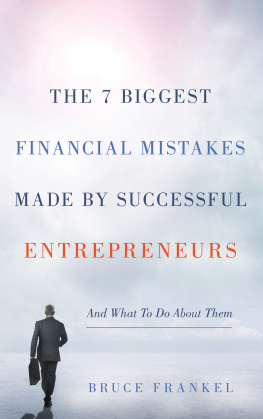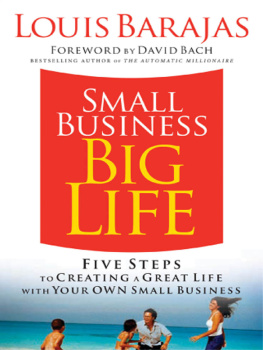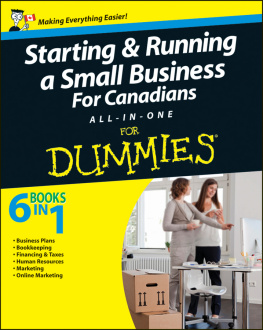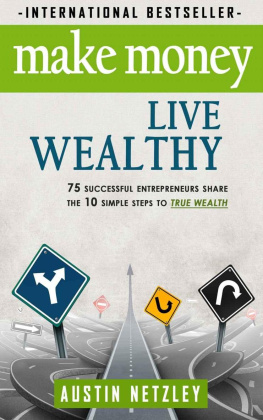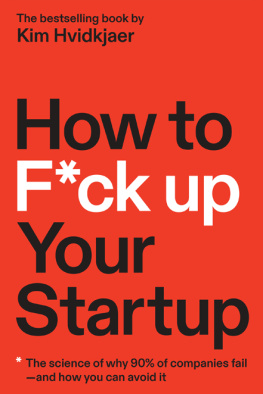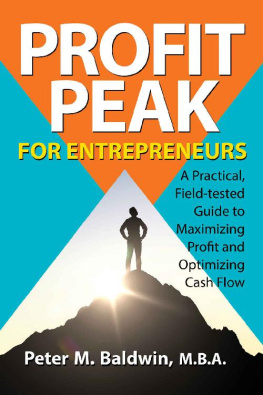This publication is designed to provide accurate and authoritative information in regard to the subject matter covered. It is sold with the understanding that the publisher and author are not engaged in rendering legal, accounting, investment, or other professional services. If legal advice or other expert assistance is required, the services of a competent professional should be sought. No investment style can immunize you from risk; loss of principal is always possible.
Published by Greenleaf Book Group Press
Austin, Texas
www.gbgpress.com
Copyright 2017 Bruce Frankel
All rights reserved.
No part of this book may be reproduced, stored in a retrieval system, or transmitted by any means, electronic, mechanical, photocopying, recording, or otherwise, without written permission from the copyright holder.
Distributed by Greenleaf Book Group
For ordering information or special discounts for bulk purchases, please contact Greenleaf Book Group at PO Box 91869, Austin, TX 78709, 512.891.6100.
Design and composition by Greenleaf Book Group and Sheila Parr
Cover design by Greenleaf Book Group and Sheila Parr
Cover image DNY59 / iStockphoto
Cataloging-in-Publication data is available.
Print ISBN: 978-1-62634-437-2
eBook ISBN: 978-1-62634-438-9
Part of the Tree Neutral program, which offsets the number of trees consumed in the production and printing of this book by taking proactive steps, such as planting trees in direct proportion to the number of trees used: www.treeneutral.com

Printed in the United States of America on acid-free paper
17 18 19 20 21 22 10 9 8 7 6 5 4 3 2 1
First Edition
Dedicated to Claudia and Ethan, whose love and support keep me going and smiling every day. You are the best, and I am the luckiest man in the world!
I know that I have the ability to achieve the object of my Definite Purpose in life; therefore, I demand of myself persistent, continuous action toward its attainment, and I here and now promise to render such action.
Napoleon Hill
CONTENTS
PREFACE
When I started working with successful small business owners, I assumed, based on their outward appearance of success, that these people must have their financial affairs in order. They lived in nice houses, sent their kids to private school, drove nice cars, and took incredible vacations. We all assume that those nice cars and the expensive clothes and the house in Pebble Beach must mean theyre not doing too badly. We assume these folks not only have their affairs in order but have their affairs optimized. We say to ourselves, Im sure they have the best advisors. Im sure they know what theyre doing. These are very knowledgeable, educated, sophisticated people.
What I realized very quickly was many of them were a mess. Once I started to dig around in their affairs and peel the onion back, I realized theyre just like everyone else. They have the same fears and blind spots. They procrastinate the same way we doputting off whatever takes them out of their comfort zone, just like the rest of us. It was not just that they had a lack of perfection; what I was particularly surprised to unveil was that they were leaving tons of opportunity on the table. These successful people have MBAs and degrees from top universities, but they werent making their circumstance and affluence work for them to their fullest potential.
Part of the reason is these strategies and their interrelationships are not taught in most business schools. When I pursued my business degree, scant time was spent on the practical application of managing personal finances, especially for business owners. Sure, they taught the classic things about building a business plan and a marketing plan and pro forma budgets. But they didnt teach how these things overlap with your personal finances and what to do about it. We spent virtually no time at all learning about how entrepreneurs can avoid common pitfalls and actually take advantage of being a successful small business owner. The best business schools in the United States leave this void in your education.
As a Certified Financial Planner professional, I specialize in working with owners, shareholders, and executives of closely held small- to medium-sized businesses. These people are bright, educated, and savvy entrepreneurs. Most of them are college educated, and many have graduate degrees. Yet I find in my practice that many of these smart people have not done the type of planning and preparation work I will talk about in this book.
I was so curious about why these very bright people leave themselves vulnerable andworse yetdont take advantage of their opportunities that I began a process of interviewing many entrepreneurs to find out if they were ever formally taught these topics. I asked open-ended questions to find out if any of their professors in undergraduate or graduate school taught how to optimize value for transition or how to protect their business if things dont go according to plan. I asked if their advisor team illustrated how they can legally take advantage of the tax and labor laws to help them grow and protect their wealth. By far, the overwhelming response was no on both accounts, and some of these entrepreneurs attended very prestigious business schools, including the best Ivy League schools in the United States.
And these peopleyou, the reader of this book represent an incredibly important part of the economy. If you are curious about statistics, as I am, you can find your states profile on the SBAs Office of Advocacy website. The national highlights of the profile include the following (and most recent as of this writing) small business statistics:
1.The United States is home to 28 million small businesses.
2.Small businesses represent 99.7% of all businesses with employees.
3.They employ about 55 million of the nations private-sector workforce.
4.Small businesses with fewer than 100 employees have the largest share of small business employment.
5.The top three small business industries with the most jobs include
Health care and social assistance
Accommodation and food services
Retail trade
6.Most small businesses are sole proprietors.
7.Annual income from sole proprietorships increased 7.1% in the third quarter of 2013 and totaled $1.2 trillion.
Given the number of small businesses in the United States and the number of people these businesses impact (employers, employees, vendors, and customers), by helping entrepreneurs like you avoid these common mistakes, I hope to enable you to make an even greater impact on the micro and macro environment in your life. Its not just about avoiding mistakes but about helping successful, hardworking people actually take advantage of the unique opportunities you may have without even realizing it.
In this book, we are going to discuss strategies that have already helped hundreds of lives in my business management and consulting work and our wealth consulting practice. These concepts can help you or people you know. They are useful at any phase of a business, from concept to those who have already achieved great successeven when youre ready to transition one way or another.
However, you can only benefit from this information ifand this is a big if hereyou take action. This is often the biggest obstacle. I can help educate you and provide you with opportunity, but you have to do the work to get educated and empowered to make informed decisions. Like the proverbial horse that cant be forced to drink, I can explain things that are the most logical in the world, but I cant make you take action.

